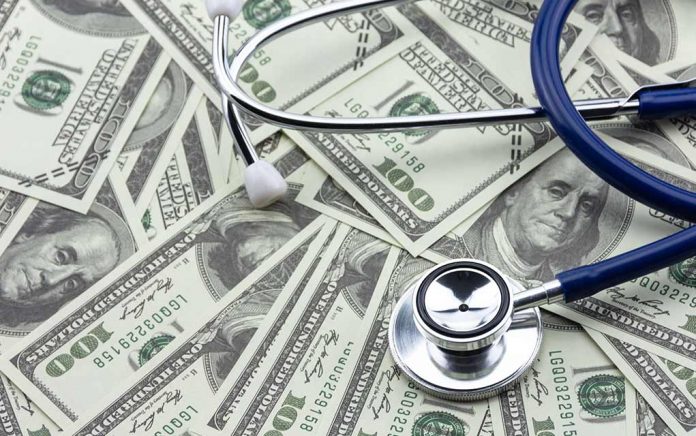
If you live in the United States, even if you’re a healthy person, health care costs may easily consume a good portion of your income. Compared to what people pay in other parts of the world, we Americans tend to get stuck with disproportionately high medical bills. So what exactly are we paying for our health care? The actual numbers might have you pricing antacids or upping your blood pressure medication.
Quick Read:
The average American is paying between 3% and 5% more on health coverage this year than last year. A 40-year-old non-smoker without an employer to help with premium expenses can expect to pay about $200 each month. We spend at least twice as much on healthcare as people in many other industrialized countries. Get the numbers below on what Americans are really paying and compare them to your own monthly health expenses.
Check Out What Americans Are REALLY Paying for Health Care.
Overall Spending
Fortune reports that the U.S. spent $3.65 trillion in 2018 on health care — more than any other developed country. Overall, we spend about twice as much each year on health care than our neighbors in Canada and nearly ten times as much as people living in Mexico. Residents of Switzerland, the Netherlands, France and the U.K. also pay significantly less than we do.
Increased Premiums
Last year, the average healthcare premium rose between 3% and 5%, costing the typical family about $19,616 each year. Although employers helped foot much of the bill, most people still paid out about $1000 more last year than they did in 2017. Subsidized coverage, without employer help, cost the average, single 40-year-old nonsmoker about $200 each month.
Out-of-Pocket Expenses
If sky-high premiums seem like enough to make you want to give up on insurance altogether, think again. Out-of-pocket expenses can be enough to bankrupt a person overnight.
Consider the following U.S. figures:
- An ambulance ride costs between $400 and $1200. That expense can shoot up as high as $200,000 if you need an emergency helicopter ride.
- A trip to the ER will set you back anywhere between $150 and $3000.
- Blood tests generally cost between $100 and $3000. These can add up quickly if you need multiple tests.
- A broken ankle will run you between $17,000 and $35,000.
- Breast cancer treatment typically costs between $15,000 and $300,000.
- Childbirth costs between $9,000 and $17,000 dollars, and that’s without complications. If you need a Caesarian section, add $14,000 to $25,000 more to the bill. If the baby needs to stay for observation or care, add another $3000 per day.
- Surgeries can run anywhere between $10,000 and $150,000, not counting additional hospital stay costs.
Now consider some common medical expenses compared to their counterparts in Australia and Spain:
- It costs about $1,119 to get an MRI in the U.S. That same MRI will cost you about $215 in Australia.
- The cost to have an appendix removed in the U.S. is about $15,930. You can have the same surgery in Spain for about $2000 or in Australia for less than $4000.
- One day in the hospital will run you about $5220 in the U.S. In Spain, one day of in-patient care costs about $424.
Travelers Beware
The cost of healthcare in the U.S. is so high travelers from other countries are urged to buy private health insurance to cover their visits here. This generally costs between $30 and $300 per month depending on coverage. While it’s not unusual for travelers to pay for insurance to cover themselves in the countries they’re visiting, U.S. out-of-pocket prices make it all but necessary.
Americans are spending far more on health care than we should be, but until more efforts are made to rein in greedy CEOs, prices will continue to rise. And if you’re wondering where all that premium money is going, consider the fact that drug and insurance companies reported record profits last year, so the expense is far from a necessary evil. Are you getting your money’s worth?
~ Here’s to Your Healthy Ascension!
Copyright 2020, AscendHealthy.com













